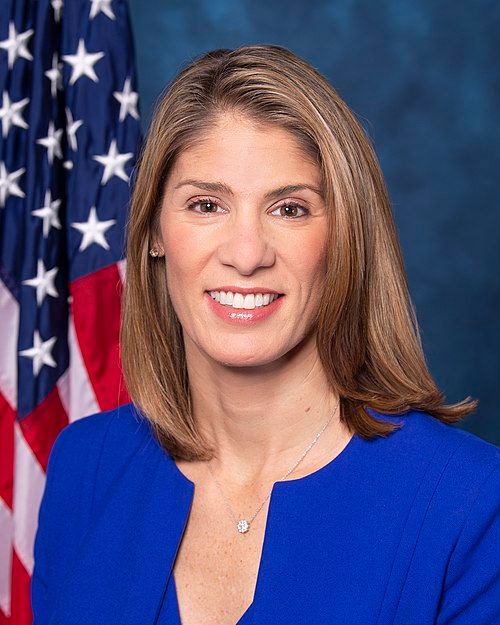NCAA’s Power Grab: The SCORE Act and the Fight Over Athlete Rights
- Jason Meyer
- Jun 12, 2025
- 4 min read

Now that House v. NCAA has been finalized, the NCAA has sprinted to Congress, hoping lawmakers will clean up the mess the NCAA itself created. Charlie Baker clearly saw this coming. The fact that Congress is already debating the Student Compensation and Opportunity through Rights and Endorsements (SCORE) Act (sponsored by Rep. Gus Bilirakis) shows he’s been working his political connections to get some top cover.
(This isn’t a political blog, but it sure seems like party lines are forming, with Republicans backing this bill and Democrats pushing back...specifically Rep. Lori Trahan from Massachusetts who seemed to have some strong words for her republican colleagues today).
So What Is the SCORE Act?
According to this summary from the House, the SCORE Act lays out a new federal framework for NIL. On the surface, some of it seems like a good-faith effort to bring order to a fast-moving, chaotic landscape. Specifically, the bill:
Defines Key Terms – including college sports revenue, institutional affiliates, Interstate Intercollegiate Athletic Associations (IIAAs), and pool limits.
Affirms NIL Rights – says athletes can enter NIL deals without being penalized by their schools, conferences, or IIAAs, with two main exceptions:
If the deal violates a school’s code of conduct or existing institutional contracts.
If it involves unauthorized use of school branding or facilities.
Requires Disclosure – any athlete earning more than $600/year from NIL has to disclose the deal to their school and IIAA.
Protects Privacy – promises confidentiality for NIL contracts and lets athletes hire agents without losing eligibility.
Codifies NCAA "Core Guarantees" – access to medical coverage, academic support, and scholarship protections.
Updates SPARTA (the sports agent law) – requires agents in NIL deals to register with an IIAA, and drops outdated eligibility warnings.
Elevates IIAAs – gives them the power to collect and share NIL data, and enforce rules on eligibility, recruiting, transfers, compensation limits, revenue sharing, scholarships, and championships.
Preempts State Laws – wipes out any state or local NIL laws by creating one national standard.
Adds Antitrust Protection – includes a placeholder for shielding the NCAA from future antitrust lawsuits.
Declares Athletes Are Not Employees – explicitly says college athletes aren’t employees under state or federal labor laws.
All of that might sound reasonable — until you get to those last two bullets.
What’s Really Going On Here
“Antitrust safe harbor” and “not employees”? These are massive red flags. In plain terms, the NCAA and Congress still want to cap how much athletes can earn and stop them from organizing. If athletes can’t unionize or collectively bargain, then the NCAA stays in charge. And we all know what happens when the NCAA is in charge: chaos, stunted growth, lawsuits, and bad outcomes for athletes.
Why is Congress doing this? I’d guess it’s because schools are feeling the heat financially. If athletes keep gaining power and earning more, school and athletic department budgets could take a hit. That’s real...but just because it’s hard for schools doesn’t mean it’s okay to limit athletes. Here’s what’s wrong with this bill:
What the SCORE Act Gets Wrong
1. It Undermines Court Rulings: Alston and House both ruled that NCAA limits on athlete compensation violate antitrust laws. If Congress passes this bill, it effectively overrules those decisions and protects the NCAA instead of the athletes.
2. It Blocks Collective Bargaining: By saying athletes aren’t employees, it blocks unionization. Athletes lose the right to negotiate, organize, or strike, the exact tools they’d need to change a system that has long worked against them.
3. It’s Anti-Competitive: Giving the NCAA antitrust immunity means they can set compensation limits across all schools and conferences without legal risk. In any other industry, that’s textbook price-fixing. It only becomes legal here because Congress says so.
4. It Hands Power Back to the NCAA: The last 20 years (O’Bannon, Alston, House, NIL rights, the transfer portal ) have all shifted power toward the athletes. The SCORE Act reverses that. It puts control back in the hands of the NCAA and locks it in with federal law.
Why in the world would we go back to that?
This Isn’t Reform, It’s a Rewind
Athletes have fought for over two decades to get what they deserve: recognition, compensation, freedom. Now that they’re finally on the verge of getting it, Congress is stepping in to make that progress mostly symbolic.
By legally preventing athletes from organizing or bargaining, this bill keeps them locked out of decisions about their own future. It also wipes out state laws that go further in supporting athlete rights. And it does all this under the guise of “preserving tradition.” But let’s be honest, that tradition is about keeping athletes unpaid while everyone else profits.
And once again, the NCAA stays in control. And what happens when the NCAA is in control? Chaos. Stagnation. Lawsuits. We've seen this movie before.
What Should Happen Next
This bill is technically just a “discussion draft.” That means there’s still time for Congress to do the right thing; to craft a bill that finds real balance:
Give athletes the power they’ve earned.
Protect the financial health of schools and athletic departments.
Restore order without rolling back progress.
But if the final bill looks anything like this draft, it won’t be a step forward. It’ll be a return to the same old system; just with shinier packaging.



Comments